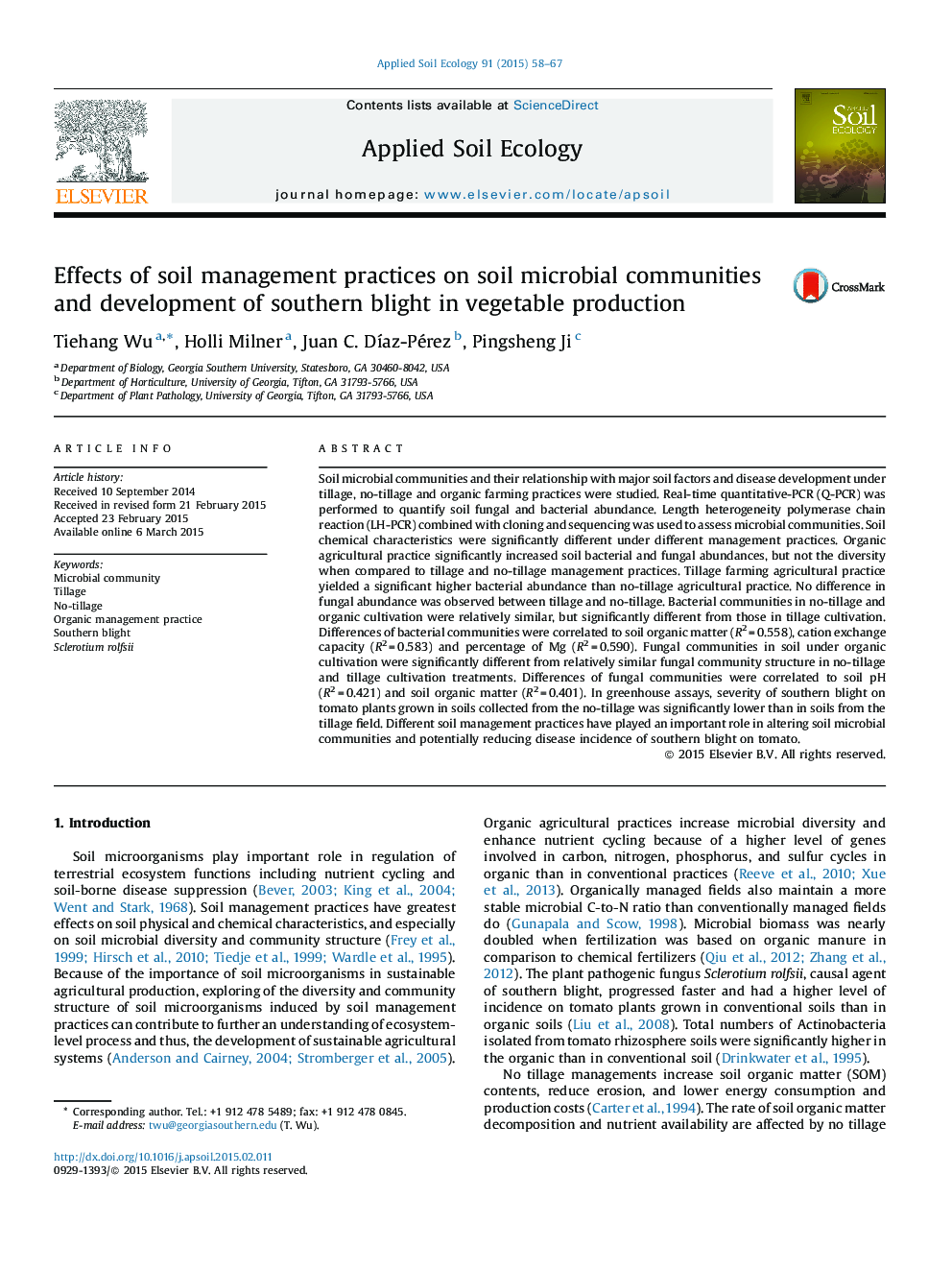| کد مقاله | کد نشریه | سال انتشار | مقاله انگلیسی | نسخه تمام متن |
|---|---|---|---|---|
| 4382019 | 1617792 | 2015 | 10 صفحه PDF | دانلود رایگان |
• Tillage, no-tillage and organic practices altered soil bacterial and fungal communities and DNA quantities extracted from soil.
• Organic practice increased soil bacterial and fungal DNA quantities, but not diversity.
• Distinct soil bacterial and fungal communities were correlated to major soil factors.
• In greenhouse assays, severity of southern blight on tomato was significantly lower in no-tillage than in tillage field soil.
• Soil microbial communities may have played an important role in reducing southern blight on tomato.
Soil microbial communities and their relationship with major soil factors and disease development under tillage, no-tillage and organic farming practices were studied. Real-time quantitative-PCR (Q-PCR) was performed to quantify soil fungal and bacterial abundance. Length heterogeneity polymerase chain reaction (LH-PCR) combined with cloning and sequencing was used to assess microbial communities. Soil chemical characteristics were significantly different under different management practices. Organic agricultural practice significantly increased soil bacterial and fungal abundances, but not the diversity when compared to tillage and no-tillage management practices. Tillage farming agricultural practice yielded a significant higher bacterial abundance than no-tillage agricultural practice. No difference in fungal abundance was observed between tillage and no-tillage. Bacterial communities in no-tillage and organic cultivation were relatively similar, but significantly different from those in tillage cultivation. Differences of bacterial communities were correlated to soil organic matter (R2 = 0.558), cation exchange capacity (R2 = 0.583) and percentage of Mg (R2 = 0.590). Fungal communities in soil under organic cultivation were significantly different from relatively similar fungal community structure in no-tillage and tillage cultivation treatments. Differences of fungal communities were correlated to soil pH (R2 = 0.421) and soil organic matter (R2 = 0.401). In greenhouse assays, severity of southern blight on tomato plants grown in soils collected from the no-tillage was significantly lower than in soils from the tillage field. Different soil management practices have played an important role in altering soil microbial communities and potentially reducing disease incidence of southern blight on tomato.
Journal: Applied Soil Ecology - Volume 91, July 2015, Pages 58–67
